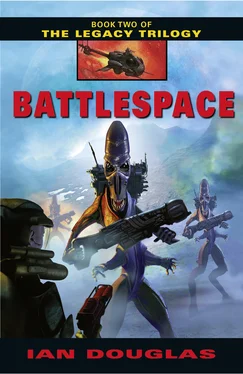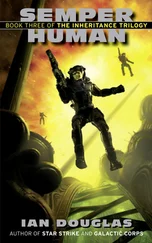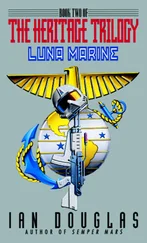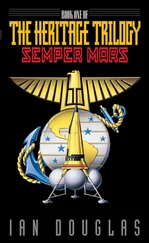1 ...8 9 10 12 13 14 ...23 Modern combat made the concept a bit trickier than it had been back in the days of the Old Corps. Space was a completely three-dimensional medium and controlling the approaches to the battlefield when you had to take into account the possibilities of a strike from space was a lot tougher than worrying about air strikes from a carrier at sea or from the other side of the mountains. The MIEU-1’s attack against the Ahannu on Ishtar had been carried out by troop transports approaching from the opposite side of the planet, then skimming in from over the horizon.
Ramsey looked up at the huge ring floating in the middle of a vast emptiness above him and wondered how they would approach that target.
It wasn’t going to be easy.
“Colonel Ramsey,” Dominick went on, “it is the consideration of the Joint Chiefs that your group would be best for this mission. They have experience taking a fortified enemy-alien position, the Legation Compound on Ishtar, and they have experience deploying in a hostile alien environment. They were superb on Ishtar. More, they have already been screened for Famsit one and two considerations.”
“Sir,” Ramsey said, “with respect … is this a voluntary deployment? Or are you just shipping us out?”
“Well, consideration will be given to each Marine’s personal wish, of course,” one of Kinsey’s aides said. She was a colonel, and her electronic ID label read CHENG. Ramsey mentally requested further information, and a window opened in his awareness, silently scrolling words identifying Cheng as an expert in sociopsychological engineering.
“Forgive me, Colonel Cheng,” Ramsey said, “but in the Corps that doesn’t mean squat. I want to know if you plan on shipping these boys and girls out again without even hearing what they have to say about the matter. These people have fought hard for their country and for the Corps. They deserve to be treated right.”
“I think what Colonel Cheng is saying,” Franklin Shugart told him, “is that we will listen to what your people have to say. Those who wish to remain on Earth should be able to, after … appropriate retraining.”
“‘Appropriate retraining,’” Ramsey repeated. He didn’t like the sound of that. “What’s that supposed to mean?”
“Earth has changed in twenty years, Colonel,” Shugart told him. “You don’t yet know how much it’s changed. The culture. The language. The political spectrum. The religious splintering.”
“Twenty years isn’t so much.”
“No? You haven’t been here. We have. I sub you not glyph us on our n-state stats until you’ve DLed the gamma-channa.”
Ramsey mentally checked his noumenal link and saw that Shugart had disengaged a consecutive translation function for his last few words.
“Okay, so your speech patterns have shifted a bit. We can learn. People who’ve been alive for more than twenty years have learned.”
“Yes, but gradually,” Shugart pointed out, restoring the translation function.
“Right,” Kinsey added. “We didn’t get hit with it all packed into one incoming warhead. I was … what? Thirty-eight when Operation Spirit of Humankind set out for the Lalande system. There’ve been astonishing changes in the years since, but I adapted to them incrementally, step by step, like everyone else. Like everyone except the Marines of MIEU-1.”
“The truth of it, Colonel,” Cheng said, “is that there are certain, well, legal problems with simply loosing your men and women on the country, unprepared. It’s not fair to them. It’s not fair to the civilian population.”
An old, old joke about cybernetic hibernation for Marines spoke of keeping them frozen in glass tubes with sign plates reading: IN CASE OF WAR, BREAK GLASS. Marines were warriors—arguably the best damned warriors on the planet—and their skills could be embarrassing, even disruptive, in peacetime.
But it was still wrong to treat them that way.
“So you’re keeping them prisoner?” Ramsey asked. He could feel the anger rising within, a burgeoning red tide. “Lock them up and then ship them out? What kind of shit are you trying to shovel at us?”
“Colonel Ramsey,” Shugart scolded. “Some decorum, if you please. No one is going to be locked up, as you put it. But we will have to introduce certain safeguards. It’s for their own good, as well as for the protection of the civilian populace.”
“And as for shipping them out right away,” Tomasek observed, “why don’t we wait and see what they would prefer?” Her noumenal icon shrugged. “With no family attachments, with Earth changed so much, they might actually prefer another going back to space.”
“Gentlemen … ladies,” Ramsey said, “you’re asking them to give up another twenty years objective for the dubious pleasure of facing the Hunters of the Dawn. It’s too much!”
“Too much for the Marines?” Shugart said with an unpleasant smile. “I didn’t know there was such a thing.”
“They’ll go as volunteers,” Ramsey told him, “or not at all.” He owed that much to his people, at least.
“I have to agree, Mr. Shugart,” Kinsey said. “These are Marines, people , we’re dealing with. Not chess pieces.”
“I don’t believe you or the colonel fully understand,” Shugart said. “This will be a direct presidential order. The Federal Directorate has precedence over national interests.”
And that, Ramsey had to admit, was one aspect of modern politics he did not understand, and it was becoming more confusing by the decade. The sudden growth of the old United States of America during the collapse of Canada and the wars with the U.N. and Mexico in the last century had resulted in huge, new territories added to the continental United States. To manage those territories, and to prepare them for admission as new states, the United Federal Republic of America had emerged as an organizational step above the United States.
And so, technically, the Corps was now the UFR Marines. Still, tradition dies hard in the Corps. So far as most Marines were concerned, they were still the United States Marines, a title no leatherneck would surrender without a fight. While the President of the United States was also President of the Federal Republic, technically the two were not the same, and, legally, it was the United Federal Republic that called the shots now … in the name of organizational efficiency.
Not that bureaucrats ever seemed that concerned about efficiency.
Ramsey didn’t like the change, which had been well under way before the MIEU’s departure for Ishtar, and which was now very well entrenched with the new Federal capitol being constructed in New Chicago. He felt, he imagined, much as an advocate of states’ rights might have felt as the Federal government superseded mere state governments around the time of the American Civil War.
The upshot of it was that the political situation—always something of concern for the Corps—was becoming damned hard to understand.
“We can offer inducements for volunteers,” Kinsey suggested. “Surely that is preferable to simply ordering them to turn around and keep marching off into the future.”
“Perhaps,” Shugart said. “The Federal Advisory Council will leave those decisions to the Marine brass and to the American Congress. But Mr. Ramsey and his people are going to Sirius. One way or another.”
Ramsey wondered if the phrase United States of America even had meaning any longer. Just who was the Corps supposed to be fighting for now?
5 NOVEMBER 2159
Starstruck Condecology Tower Raphael Level 486 East Los Angeles, California 2028 hours, PST
Читать дальше












